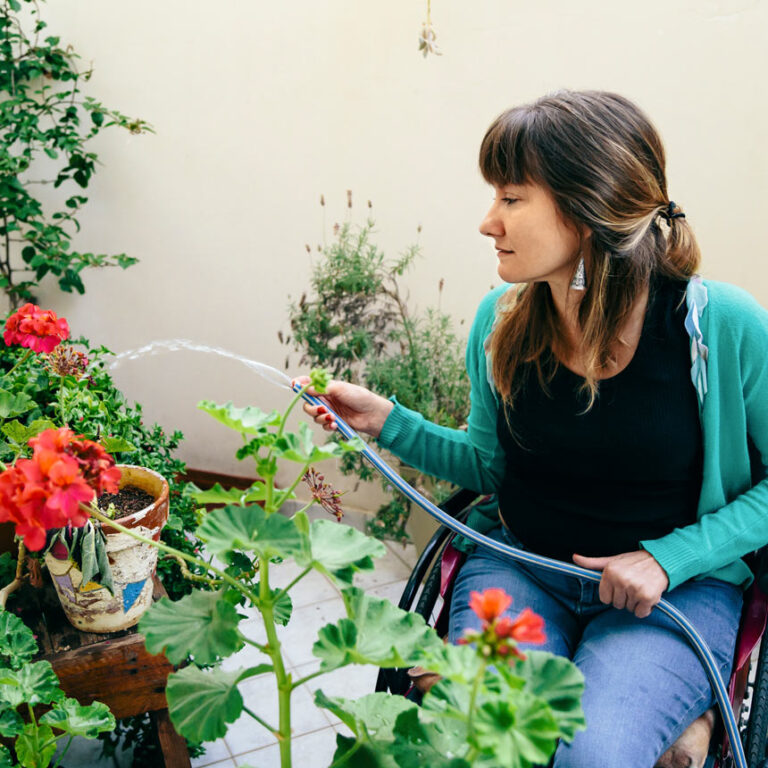
Fentanyl doesn’t care if you are rich or poor, young or old. It’s a drug that has reached epidemic proportions in Oregon and across the nation. One of our clients went from being a professional athlete to becoming homeless and living in his van. Then, things took another turn for the worse.
“I ended up in the emergency room with 23 burns on my body, in a coma. I was 81 degrees… not breathing,” says Robert [not his real name]. The ambulance that found him called the hospital, and the hospital called his parents to pick up their dead son. When he arrived at the hospital, they found he was still barely alive.
Robert had had a heart attack and was battling kidney failure, a collapsed lung, sepsis, a stroke, and more. He has no memory of the circumstances that got him there. All he knew was that after years of struggling with alcohol, he had recently become addicted to fentanyl.
"I lost everything; I have nothing," he says. "I was taking a lot of it, more than you would imagine. Obviously, we have a person that doesn’t really care much about their life."
”We are in a huge, huge crisis," Robert says. "My story is one of a million at this point. Our nation is suffering from people like me. Fentanyl is everywhere; it does not have [social or economic] bounds. It’s hitting everybody, and it’s only going to get worse.”
After nearly a month in the hospital, Robert went into a medication-assisted treatment site. Because of the damage to his heart, he had to be placed on methadone, as his heart couldn’t stand detoxification without support.
'This is the stuff that helps people get through and stay sober'
"My only job was to stay sober, which was pretty easy at that point," he says. "It was everything else that was a problem… I had a drug counselor, but I didn’t have an everyday counselor." At that counseling agency, he felt like just a number in this vast crisis.
"I got my drug counseling transferred to LifeWorks NW," he says. "In the group classes at LifeWorks NW, I learned skills that I can actually use. I got to realize that I am just like everyone else in that room."
"This is the stuff that helps people get through and stay sober," explains Robert. "It helps us learn how to make boundaries and respect other people's boundaries."
In addition to addiction counseling, Robert was surprised to receive phone calls from a variety of LifeWorks NW staff focused on helping him with other problems —whether they were medical, emotional, or drug-related. They offered mental health therapy, classes, and group therapy. They even arranged for him to see a dentist.
"In my position, I wanted everything,” he says. “I’ve got classes Tuesdays and Thursdays; they are completely voluntary.”
Holistic health and housing
Robert’s experience highlights why integrated care is so important. Because of LifeWorks NW’s focus on team-based, holistic care, we work with Robert's various providers to ensure his overall wellbeing. Now, he’s working with his primary care physician because of his ongoing heart issue.
"When she’s satisfied that my heart can take it, we’re going to slowly take me off [methadone]," says Robert. "It will take about a year.”
Robert says that many people in his position end up taking methadone for life, something his previous agency said was likely. But he’s determined to work with his doctor to safely get off it. "I’m a sailor, and it’s not allowed in Canada, so I can’t do my normal activities because of it," he says. "The hospital says I’m not going to be able to work, and that is very hard on me."
A professional athlete, Robert worked in a variety of sports. He was a sailing instructor and raced professionally. He had a hot air balloon license and taught young people to water ski.
"My life was sports, and I found out really fast in the hospital that I was never going to be an athlete ever again,” Robert says. “It was my way of life and also my source of income.”
Without an income, he had nowhere to live. LifeWorks NW Resource Specialist Wendy and the front desk staff at King helped him get housing. For Robert, this is a miracle. Having his own studio apartment and bathroom is wonderful.
"I get to walk in, and I get to lock the door," Robert says. "When I go to sleep, I know everything is OK. I don’t wake up in fear anymore. I’m not waking up to an officer in the middle of the night asking me to move my van because I’m parked in front of somebody’s house. Even when you come off the drugs, if you are homeless, people are still spitting in your face."
The beginning of everything
Now that Robert has been sober for over a year, just got housing, and is continuing his medical, mental health and addiction services, he feels like a new person.
Wendy says that when she first worked with Robert, he often cried and occasionally expressed thoughts of suicide. "What I see now is that your whole demeanor, your whole outlook on life has changed,” she says. “[It’s] a clean slate! You are so darn inspirational."
"My friends are seeing this change, too, and they have actually said the same thing,” responds Robert. "That’s because I’m done hiding. I don’t have to be afraid of being me. I’ve never seen this part of me; it’s new to me and it is going to keep on going. Right here is the beginning of everything. We’re starting over."
Wendy is helping him seek out low cost or free furniture and appliances, and soon he’ll have a safe, secure place to refrigerate his medication. LifeWorks NW staff also is supporting him as he strives to get social security disability.
As much as he hopes to someday be able to get back to work, Robert says he’ll never forget what he’s been through. He feels acknowledging the dangers of addiction and overcoming the stigma of mental health issues is crucial for all.
Robert shares these words to sum up his recovery experience:
When I got out of the hospital, I decided I wanted to take responsibility for my actions. The sepsis made me feel almost like I had Alzheimer's. It was through therapy and talking about my issues, I was actually able to ground myself and find out who I was, which was amazing.
Now, I’ll tell everyone what happens with fentanyl. I am not afraid. I used to want to hide it. But that is how you go right back on it. I’m owning it. It’s been over a year. And in a year, it will be two years. It's not part of my life anymore. It’s not part of my demeanor and it certainly is not who I am. My whole life I’ve been running from who I was. I’ve never really been sober; now that I am sober you are seeing the real me. I really appreciate Wendy for giving me the opportunity to do that. I can’t thank Wendy enough for what she’s done for me. Everybody at LifeWorks NW has been great. I haven’t been this happy in decades.










